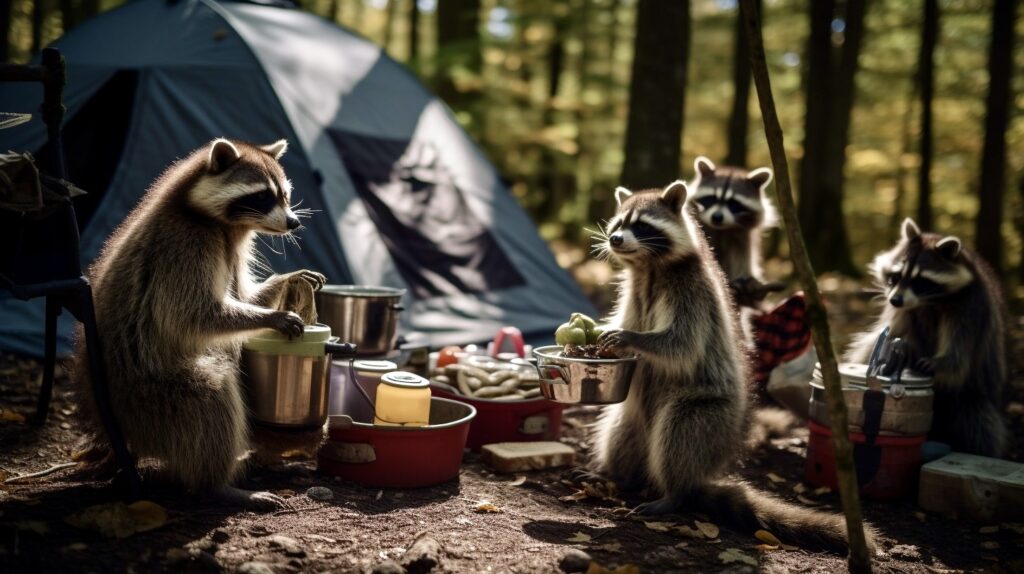Camping is all about getting close to nature, and one of the coolest parts of the experience is those unexpected wildlife encounters. From majestic eagles soaring above to curious raccoons creeping in, these moments can be pure magic. But, and this is a big but, you need to know how to play it smart. In this article, we’re diving into coexisting safely with wildlife while camping, ensuring you stay safe, and the critters remain happy and healthy.
- Know Your Environment
Just like you research your camping gear, you should research the environment you’re heading into. What types of animals are you likely to run into, and what makes them tick? Understanding the ecosystem you’re entering is the first step to making your camping trip both mind-blowing and eco-friendly.
- Respect Wildlife from Afar
Maintain that tech distance. When it comes to wildlife, keep your distance. Approaching too close can stress out our furry or feathered friends, leading to unexpected results. Instead, use binoculars, spotting scopes, and cameras with zoom lenses to catch the action from a distance, like a camping pro.
- Minimize Your Footprint
Just like you keep your digital footprint in check, it’s essential to minimize your impact on the environment. Practice those Leave No Trace principles, which means no littering. Trash and food scraps are like an open invite to wildlife, so keep your campsite clean and use bear-resistant containers to stash your food away safely. Remember, leaving your campsite better than you found it is a win for both other campers and nature.
- Bear-Proof Your Food
Bears have an uncanny sense of smell, so protecting your food is as important as securing your campsite. Bear-resistant containers, bear bags, and bear canisters are your digital shields against hungry bears. Always follow local regulations for bear-proof food storage. Always allow bears to rummage through your food if you catch them in the act. Confronting a bear is very dangerous and it is not worth risking personal safety over food items at your campsite.
- Don’t Feed the Wildlife
Feeding wildlife is like inviting a zoo into your home – it can cause serious problems. Wild animals have evolved to find their own food, and human fare can be detrimental to their well-being. Not to mention, it can lead to wildlife becoming too comfortable around humans, which could lead to dangerous situations for yourself and for other campers in your area.
- Secure Your Campsite
Just like you secure your tent zippers, you need to secure your campsite against nocturnal visitors. Lock up your food, lock up your cooler, and keep your area free of tempting scents. It’s like setting up a firewall for your campsite. Animals are bound to roam around your campsite, but ensuring that nothing of value (to an animal) is left outside is the best way to avoided unwanted furry guests.
- Carry Bear Spray
Bear spray is a potent deterrent, and knowing how to use it is just as important as knowing how to navigate your other camping gadgets. Keep it accessible and learn how to use it for those rare situations when it’s your last line of defense. Always hide from bears if you spot them first, since confronting dangerous animals should always be a last resort option.
- Make Noise
Just like you crank up the volume on your favorite tech devices, make some noise in bear country. Let those bears know you’re coming – clap your hands, talk loudly, or sing your favorite tune. Bears and other wild animals typically avoid humans if they’re aware of their presence.
- Choose Designated Campsites
Go for the established campgrounds and campsites, just like you go for tried-and-true camping brands. These areas are typically designed with safety in mind, providing features like bear-proof food storage. Following the valuable advice from park rangers and campsite managers is the responsible way to camp. Some campsites have hosted humans for so long that many animals will choose to avoid the campsite altogether.
- Respect Breeding Seasons
Wildlife behavior can change during breeding seasons, just like your mood can shift with the seasons. Some animals become territorial and aggressive when they’re protecting their young. Do your research and be extra cautious during these times. Seasons like winter can cause some animals to become more aggressive and territorial as food sources become more scarce.
Conclusion
Camping and wildlife encounters are like tech and gadgets – when done right, they’re an incredible experience. By respecting the rules of coexisting safely with wildlife, you can make the most of your camping adventure while preserving the beauty of the natural world. Remember, respecting the environment is key to a harmonious camping experience. Now go out there and enjoy the great outdoors safely!

